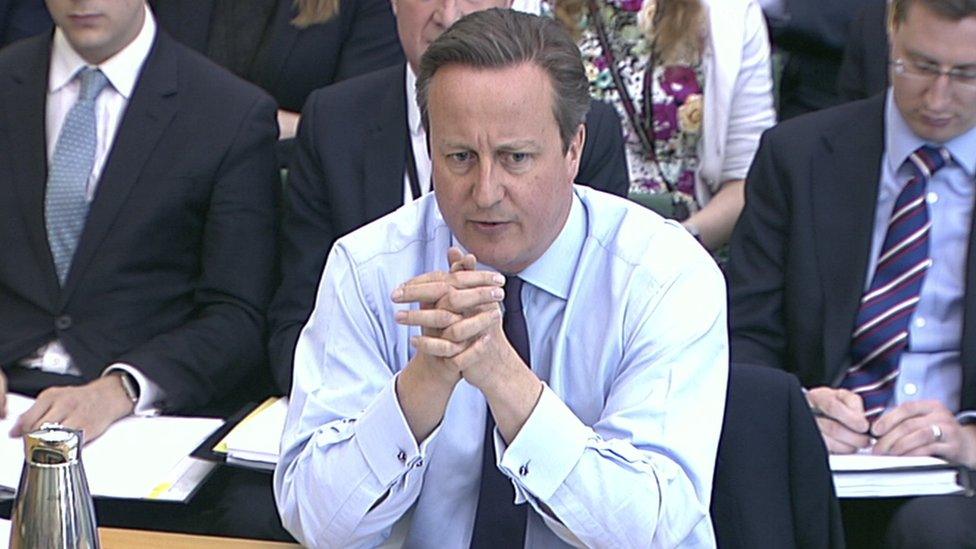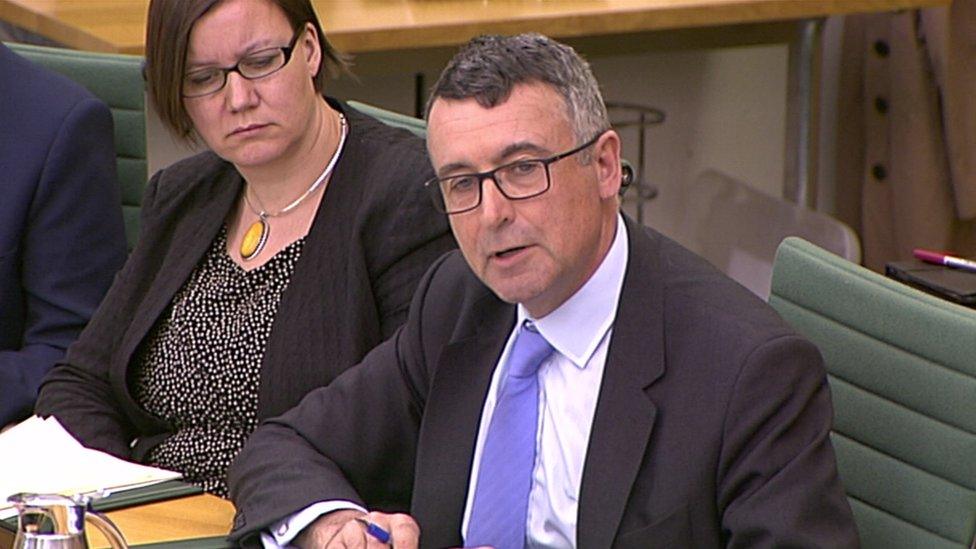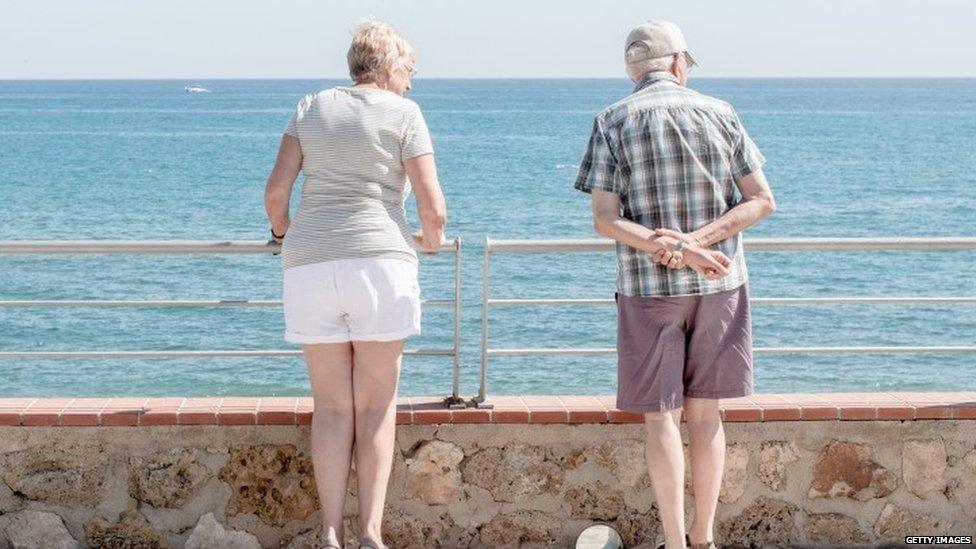EU referendum: Turkey joining EU 'not remotely on cards', says PM
- Published

David Cameron said staying in the EU was a "hard-headed calculation"
Concerns over Turkey potentially joining the EU should not influence voters in the UK's forthcoming referendum, the PM has said.
David Cameron said Turkey joining the 28-member bloc was "not remotely on the cards" and would take "decades".
Turkey is currently in long-running negotiations for accession to the EU.
Meanwhile, a Tory MP has threatened the PM with legal action if he does not remove pages from the government's main website arguing for EU membership.
The prime minister made his comments about Turkey just hours after the European Commission gave its conditional backing for Turkish people to get visa-free travel inside Europe's passport-free Schengen area - which does not include the UK.
'Not an issue'
The deal was offered in return for Turkey - which has a population of 80 million - taking back migrants who crossed the Aegean Sea to Greece, but it has sparked claims the country is on its way to full EU membership.
However, Mr Cameron told the House of Commons Liaison Committee: "I will be absolutely frank with you, I don't think the accession of Turkey to the European Union is remotely on the cards. I don't think it will happen for decades.
"If you look at the facts, the facts are that it requires unanimity of all European members. The French, for instance, have said they'd have a referendum on it.
"I would say very clearly to people, if your vote in this referendum is being influenced by considerations about Turkish membership of the EU, don't think about it. It's not remotely on the cards. It's not an issue in this referendum and it shouldn't be."
He also told the committee:
His renegotiation over Britain's membership of the EU had secured "fundamental" reforms, after he was accused by Eurosceptic Sir William Cash of offering a "false prospectus" to voters
He has changed his mind about how crucial the EU is to national security and warned the implications of Brexit were "very serious"
That he would stay on as prime minister to oversee withdrawal negotiations if Britain voted to leave on June 23
In reaction to a question from the SNP's Pete Wishart, who accused him of putting Scotland's relationship with the EU at risk, he said voters who want to preserve the UK should vote to stay in the EU
Meanwhile, Conservative MP Bernard Jenkin said the prime minister could "expect a writ" if pro-EU pages were kept on gov.uk, external in the four weeks leading up to the vote on 23 June.
'Purdah period'
The home page of gov.uk website, which sets out details of government information and services, contains a hard link to a government website setting out the benefits of the EU membership.
Mr Jenkin, a prominent Leave campaigner, said the government intended to keep all the pro-Remain pages on the gov.uk website during the 28-day "purdah period" leading up to the EU vote.

Mr Jenkin said there was a real likelihood of legal action
Mr Jenkin said he had been told keeping the pages would contravene the Political Parties and Referendum Act, which governs the conduct of referendums in the UK.
Mr Cameron said the government would be taking its own legal advice, adding: "It seems to me the right thing to do is to make sure that if there is a government website, it is not refreshed or updated during the purdah period.
"But I would ask whether it was absolutely necessary to take something down. That would seem a rather extreme position."
- Published18 April 2016

- Published30 December 2020

- Published4 May 2016
